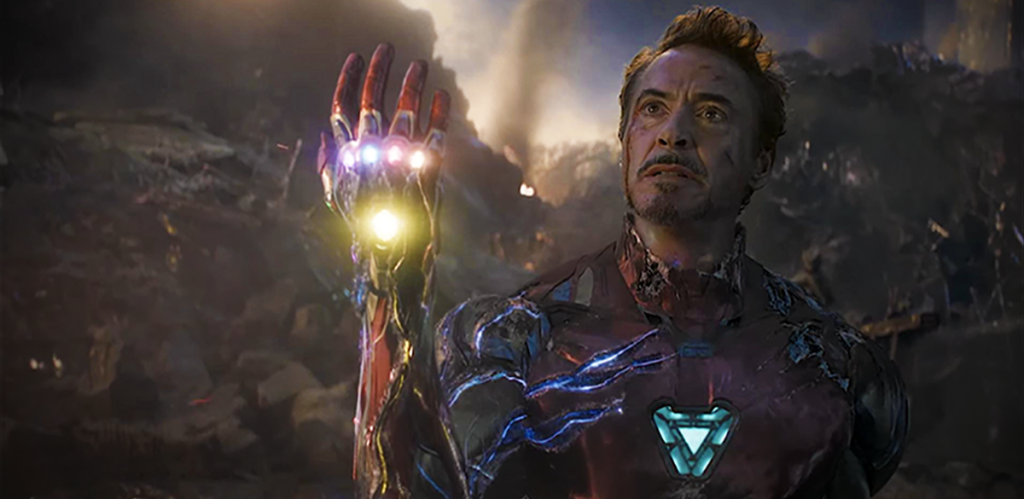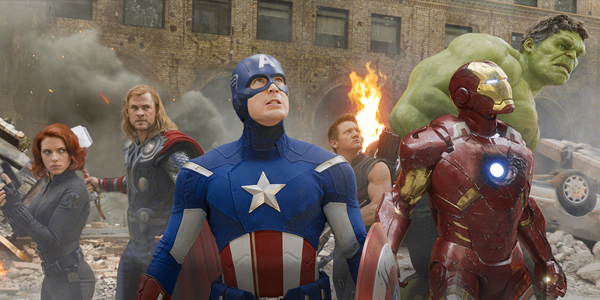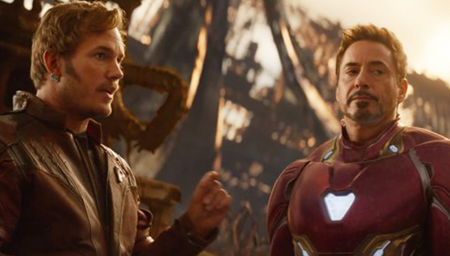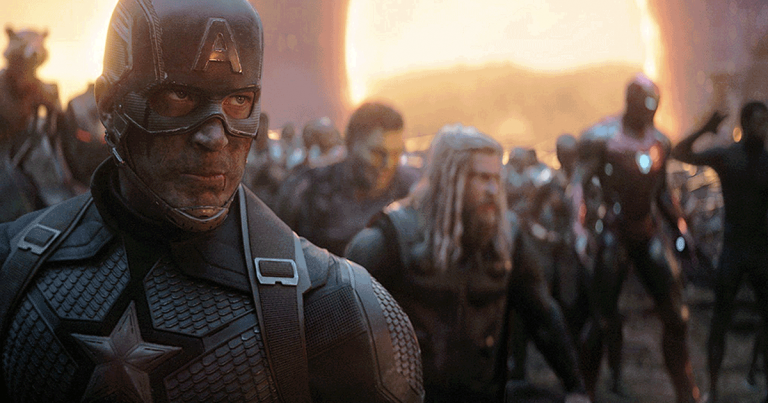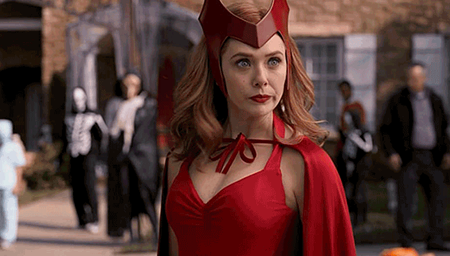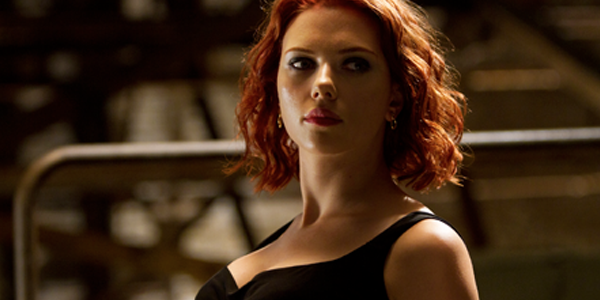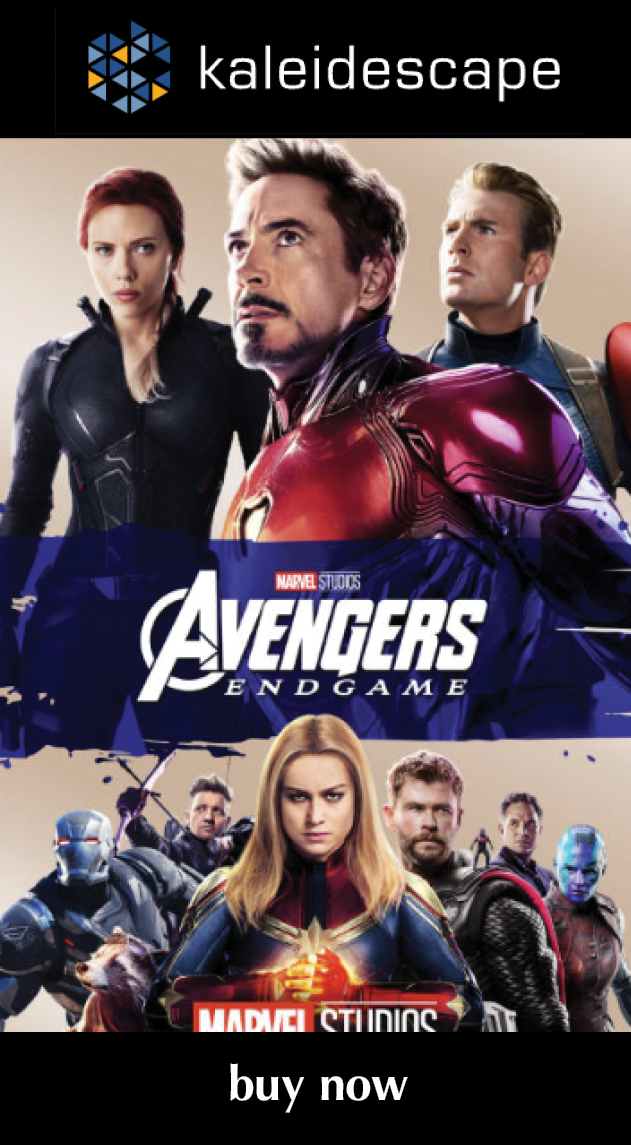the MCU on Cineluxe
related articles
Sign up for our monthly newsletter
to stay up to date on Cineluxe
The first, long chapter of the MCU saga comes to satisfying close in this three-hour film, which also makes for a satisfying home viewing experience
by Dennis Burger
July 31, 2019
Avengers: Endgame comes to the screen with an incredible amount of baggage for any one film to carry. It has to serve as the emotional and narrative conclusion of 11 years’ and 21 films’ worth of Marvel Cinematic Universe (MCU) stories. It has to serve as the second half of a film released a year earlier. It also has to work as a self-contained narrative on its own terms—one that satisfies both hardcore fans who’ve seen all 21 of those previous Marvel movies numerous times as well as more casual moviegoers who may have seen some of them only once, if at all.
The fact that Endgame manages to check all of those boxes without crumbling under its own weight is a bit of a minor cinematic miracle. That it ends up being so much more than a mere obligatory box checker is a testament to the talents of the film’s directors (Joe and Anthony Russo) and writers (Christopher Markus and Stephen McFeely).
To get into why, though, we need to dip our toes into spoiler territory, for both Endgame and 2018’s Infinity War, but I’ll try to keep things as vague as possible on both fronts, for the pair of you who’ve seen neither film. At the end of Infinity War, we were left in a weird place for a big, blockbuster superhero franchise. The villain had won. Half the population of the universe—and half of Earth’s Mightiest Heroes—had been “blipped” out of existence at the snap of a finger. Mind you, we live in a world where films are announced years in advance, and it didn’t take a savvy viewer to put two and two together and realize some of those dead heroes were only a film or two into a multi-film contract, which meant they would be coming back, somehow or another, by the end of this film.
Think about that weird conundrum for long and it quickly becomes apparent that Endgame ran the serious risk of not only narratively undermining Infinity War by undoing its deaths but also of emotionally undermining it so severely that the first part of this two-part story lost all impact for future viewings. I think the most dedicated Marvel fans amongst us all sort of went into Endgame knowing this would be the price we had to pay in order to see the resolution of this storyline.
Except that ends up not being the case at all. Instead of undermining Infinity War—narratively and emotionally—Endgame ends up enriching it, making it more interesting and impactful. If the thematic arc of Infinity War could be boiled down to coming to terms with defeat, Endgame at its core is a film about consequences. As with any good epic (in the Tolkien, not the Hollywood, sense of the word), Endgame is a film about the high cost of victory. So, rather than robbing Infinity War of emotional and narrative weight, this film piles an extra heaping helping of solemnity on its forebear and all the films that came before it.
Once its end credits roll, what we the viewers are left with is not only a satisfying yet bittersweet conclusion to the rambling and seemingly disconnected narrative that began with 2008’s Iron Man, but also one that makes us reflect on everything that has happened to the MCU’s characters along the way. It even redeems some of the MCU’s weaker efforts, like 2013’s Thor: The Dark World, although perhaps only in retrospect. (And no, I’m not confident enough in this statement to actually suffer through that movie again to find out for sure.)
But as I said, Endgame would be a wholly unsatisfying film if it were merely a massive nostalgia romp. I won’t recount the plot here, because if you’ve seen the movie you already know it, and if you haven’t, I would sound like I was having a stroke. But what makes the film work on its own terms is, in part, the economy of its storytelling. That may seem an ironic statement to make about a three-hour film, but the Russos, Markus, and McNeely have managed to craft an engrossing narrative that feels perfectly paced, because when the plot is simple and straightforward, they use that opportunity to ramp up the richness and diversity of the story’s themes. And by contrast, when the narrative gets more complex (as will happen when you’re playing around with comic-book quantum physics and the fabric of spacetime), they use simpler and more straightforward thematic underpinning to maintain a coherent through-line.
The film also uses the luxury of its relatively long running time to give the characters a lot of room to breathe. Upon second viewing, I was taken aback by how much of it is devoted to people sitting around, simply talking to one another. It’s refreshing, and it’s exactly what was required to give these characters one last chance to grow, and express their growth, in shockingly adult ways. Coming out the other end of the film, I wonder if most viewers realize that only about half an hour of screen time is really dedicated to stereotypical blockbuster comic-book action scenes.
Unsurprisingly, it is those scenes that shine the brightest in Kaleidescape’s 4K/HDR presentation. And I mean that literally. This is some of the most effective use of HDR I’ve seen, especially in the big battle at the end, where stunning contrasts are used not merely for eye candy but to reinforce the emotions of the sequence. I watched this epic throw-down back-to-back in Blu-ray quality and 4K with HDR, and while it certainly got my nerd heart pumping in mere 1080p HD, I was literally moved to tears by the climactic turning point of the battle as it played out in high dynamic range.
But if you’re just in it for the eye candy, the Kaleidescape transfer works on that front, too, even if the vivid and detailed presentation does at times make some of the special effects ever-so-slightly too obvious. Audio enthusiasts who’ve grumbled at Disney for their sometimes-lackluster audio mixes will also be delighted by the richness of the soundtrack and its effective use of bowel-loosening bass and the aggressiveness of the Dolby TrueHD Atmos track’s height channels. Truth be told, those effects were a little too distracting for my tastes and I preferred the included DTS-HD Master Audio 7.1 mix but it’s nice that both options are available.
There is one other audio track that absolutely cannot be ignored, although you’ll only find it on the Blu-ray quality download (which is included with your 4K HDR purchase): The audio commentary by the Russos, Markus, and McFeely. If you listened to their commentary for Infinity War, you know what you’re in for. If not, I’m jealous that you get to experience it for the first time. As with the previous film, their commentary is less a scene-by-scene breakdown of how the film was made and more a masterclass in storytelling, character development, and filmmaking, making it essential listening even if you typically skip commentaries.
It’s a shame that the rest of the extras don’t rise to the same level. Also included with the Blu-ray quality download is about an hour’s worth of bonus documentaries that you can mostly ignore, except for the eight-minute tribute to Stan Lee that was included after the film in its soft theatrical re-release back in June. You’ll also want to check out the last of the six deleted scenes (which, by the way, doesn’t include the excised clip that was tacked onto the aforementioned theatrical re-release).
Hopefully, at some point Endgame will get a double-dip home video release whose bonus features dig a little deeper into the rich tapestry that is this film. Until then, though, this one is a must-own.
Dennis Burger is an avid Star Wars scholar, Tolkien fanatic, and Corvette enthusiast who somehow also manages to find time for technological passions including high-end audio, home automation, and video gaming. He lives in the armpit of Alabama with his wife Bethany and their four-legged child Bruno, a 75-pound American Staffordshire Terrier who thinks he’s a Pomeranian.
PICTURE | Some of the most effective use of HDR ever, especially in the big battle at the end, where stunning contrasts are used not merely for eye candy but to reinforce the emotions of the sequence
SOUND | Anyone who’s grumbled about Disney’s sometimes lackluster audio mixes will be delighted by the richness of the Atmos soundtrack and its effective use of bowel-loosening bass and the aggressiveness of the height channel effects
© 2023 Cineluxe LLC


